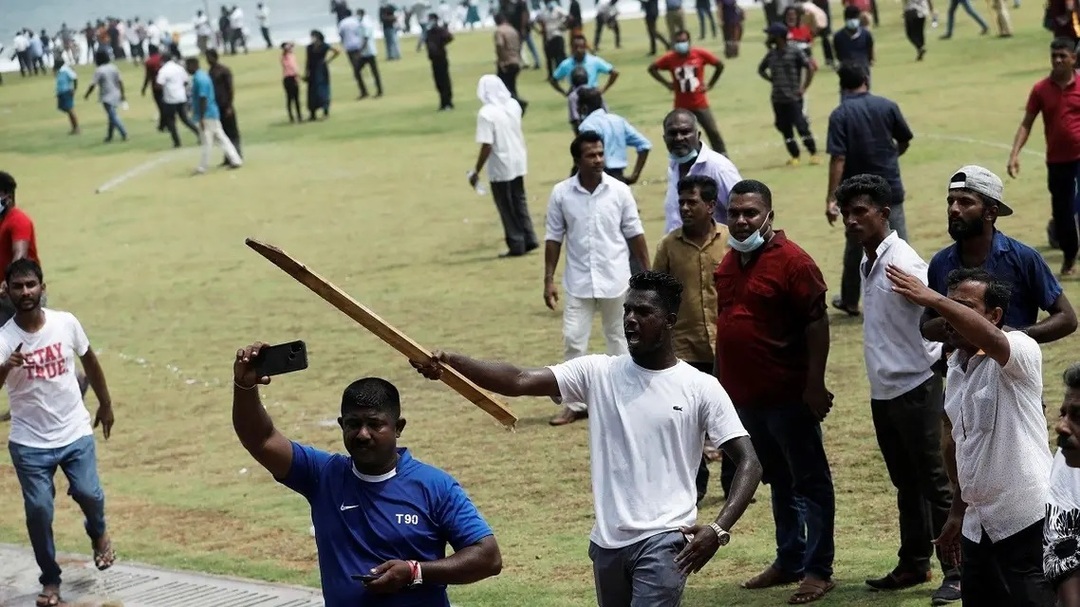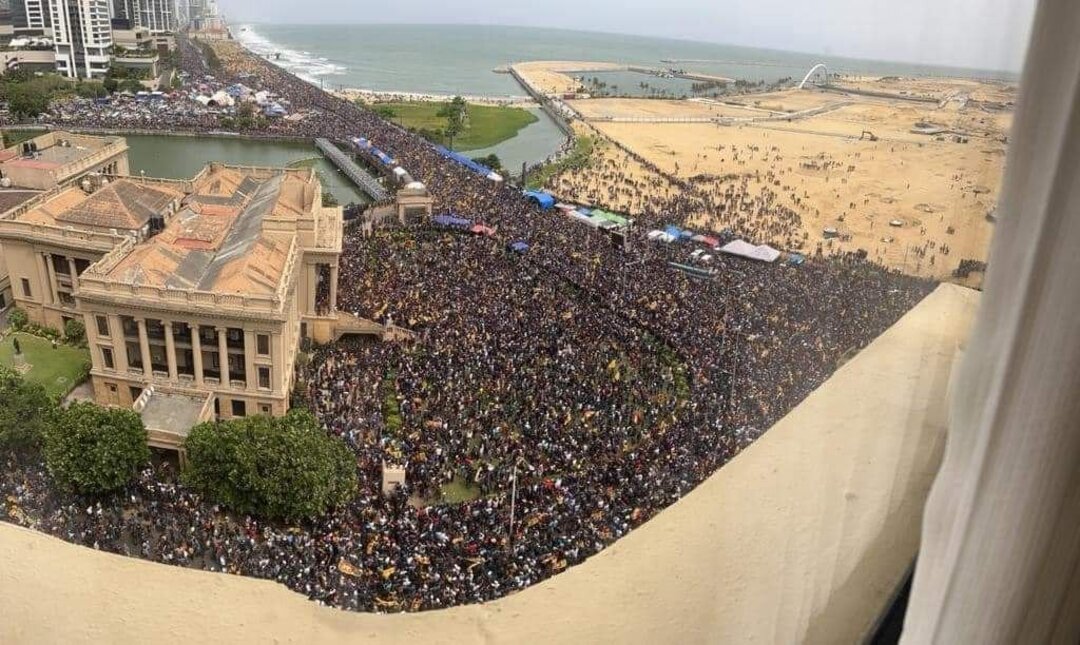-
Sri Lanka's parliament to elect new president on July 20

Sri Lanka's parliament will convene on July 15 and a new president will be elected on July 20, as President Gotabaya Rajapaksa plans to resign on Wednesday (July 13) amid protests.
This was decided during the ruling party leaders' meeting held on Monday (July 11) , an official told Anadolu Agency on condition of anonymity due to restrictions on speaking to the media.
Sri Lanka's President Gotabaya Rajapaksa is set to announce his resignation on July 13, paving the way for an interim administration, following ongoing protests that demand his resignation over failure to manage the Indian Ocean island's economic crisis.
In an unprecedented show of people's power, hundreds of thousands of anti-government protestors stormed into Rajapaksa's official residence and the presidential secretariat on July 9 and continue to occupy the buildings, demanding his resignation.
They also took control of Temple Trees, the prime minister's official residence.

Sri Lanka has been reeling under a balance of payment crisis and since March has failed to service its debt, forcing Prime Minister Ranil Wickremesinghe to declare the country bankrupt on July 7.
During a meeting this morning, Wickremesinghe discussed the political future of the country with the Cabinet of ministers who offered to resign from their portfolios as required, in order to pave the way for an all-party interim administration.
Sri Lanka protesters storm president's house, clash with police
Protesting groups have warned of a resumption of street protests and crippling the public service through a multi-sector countrywide strike action on Wednesday if the president does not voluntarily resign.
Protesters have also demanded the immediate resignation of Wickremesinghe, allowing the parliament to set up a caretaker administrator led by a parliamentarian who commands the support of the majority in the House.
Among the key demands is the immediate resignation of ministers, state ministers, and top heads of public institutions, a short-term relief program to restore normalcy, a new tax regime, promulgation of a new constitution that reflects the aspirations of the people, abolition of the executive presidency, wide democratic reforms and measures to recover alleged stolen assets.
Sri Lanka suspends fuel sales for two weeks: official
Rajapaksa was elected with an unprecedented mandate to ensure national security and to move the island towards a path to prosperity though his two-year rule is now dubbed the weakest since political independence in 1948.
Source: anews
You May Also Like
Popular Posts
Caricature
BENEFIT Sponsors BuildHer...
- April 23, 2025
BENEFIT, the Kingdom’s innovator and leading company in Fintech and electronic financial transactions service, has sponsored the BuildHer CityHack 2025 Hackathon, a two-day event spearheaded by the College of Engineering and Technology at the Royal University for Women (RUW).
Aimed at secondary school students, the event brought together a distinguished group of academic professionals and technology experts to mentor and inspire young participants.
More than 100 high school students from across the Kingdom of Bahrain took part in the hackathon, which featured an intensive programme of training workshops and hands-on sessions. These activities were tailored to enhance participants’ critical thinking, collaborative problem-solving, and team-building capabilities, while also encouraging the development of practical and sustainable solutions to contemporary challenges using modern technological tools.
BENEFIT’s Chief Executive Mr. Abdulwahed AlJanahi, commented: “Our support for this educational hackathon reflects our long-term strategic vision to nurture the talents of emerging national youth and empower the next generation of accomplished female leaders in technology. By fostering creativity and innovation, we aim to contribute meaningfully to Bahrain’s comprehensive development goals and align with the aspirations outlined in the Kingdom’s Vision 2030—an ambition in which BENEFIT plays a central role.”
Professor Riyadh Yousif Hamzah, President of the Royal University for Women, commented: “This initiative reflects our commitment to advancing women in STEM fields. We're cultivating a generation of creative, solution-driven female leaders who will drive national development. Our partnership with BENEFIT exemplifies the powerful synergy between academia and private sector in supporting educational innovation.”
Hanan Abdulla Hasan, Senior Manager, PR & Communication at BENEFIT, said: “We are honoured to collaborate with RUW in supporting this remarkable technology-focused event. It highlights our commitment to social responsibility, and our ongoing efforts to enhance the digital and innovation capabilities of young Bahraini women and foster their ability to harness technological tools in the service of a smarter, more sustainable future.”
For his part, Dr. Humam ElAgha, Acting Dean of the College of Engineering and Technology at the University, said: “BuildHer CityHack 2025 embodies our hands-on approach to education. By tackling real-world problems through creative thinking and sustainable solutions, we're preparing women to thrive in the knowledge economy – a cornerstone of the University's vision.”
opinion
Report
ads
Newsletter
Subscribe to our mailing list to get the new updates!






















